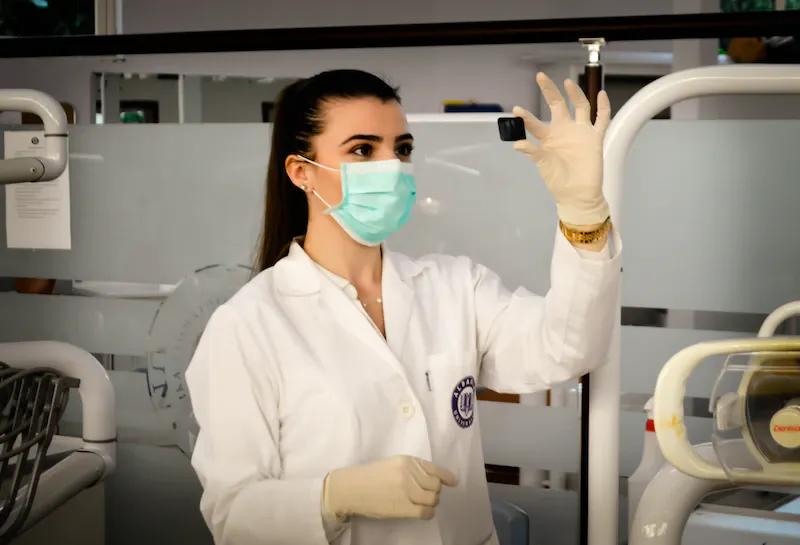Why Sex is Becoming an Endangered Species: Exploring the Causes and Implications for Society

Why sex is becoming an endangered species
As a society, we’re living in a sexual culture that is incredibly confusing. On one hand, we’re bombarded with messages that pressure us to look and act a certain way in order to be considered “sexy.” We’re told what we’re supposed to like and how we’re supposed to feel. On the other hand, there’s a lot of shame and silence around sex. It’s still considered taboo and many people are afraid to talk about it openly.
All of these stories that we hear about sex have hijacked our bodies and our beds. They’ve created this background noise that we’re not even aware of, dictating what should and shouldn’t happen in our sexual experiences. It’s no wonder that sex has become so complicated and difficult to navigate.
We’ve come to approach sex like a job or a math equation. We try to figure it out and get it right, instead of just letting ourselves be in the moment and experiencing it fully. We try to perform according to someone else’s script, instead of being true to ourselves.
What’s really missing in our sexual experiences is ourselves. We’ve put ourselves and sex in a box that is just too small. Sex is about knowing what we’re feeling and learning to trust that. We need to start by trusting the reality of our bodies, the role of our emotions, and the wisdom of our pleasure.
We need to let our bodies be as they actually are in any given moment during sex. We shouldn’t demand ourselves to feel pleasure where there isn’t any. We need to be open to everything that’s happening and not just focus on our genitals.
Our emotions are also an important part of our sexual experience. We need to be able to let them guide us and communicate with our partner. Sex is not just about orgasm; it’s about letting ourselves experience pleasure in all its forms.
If we start telling the truth about what we want and need from our sexual experiences, we can start to create a new story about sex. It’s not about learning something new; it’s about coming back home to ourselves and trusting what we feel. When sex goes skin-deep, we know that something is missing. We come to sex to touch what’s beyond skin-deep, and that’s what makes it truly beautiful.
Why Sex Has Become an Endangered Species: Understanding Our Sexual Culture
Sex has always been a complex and sensitive topic to talk about, but in today’s society, it’s becoming an endangered species. We live in a super confusing sexual culture that puts pressure on us to conform to unrealistic standards and ideals of what sex and sexy should look, sound, feel, and act like.
The media bombards us with sexualized images of people, portraying them as objects rather than individuals with real desires and emotions. We’re told what to wear, how to look, and what to do in bed. All of these messages have created a sexualized culture that can be overwhelming and, at times, contradictory.
However, alongside these messages, there is also a lot of shame and silence surrounding sex. People often feel embarrassed to discuss sex openly and honestly, which creates a vicious cycle of confusion, shame, and repression.
These stories and messages have hijacked our sexual experiences, dictating what we should or shouldn’t do, feel, or think during sex. They’ve created a background noise that we’re not even aware of, making it difficult to trust ourselves and our partners.
Instead of enjoying and experiencing sex for what it is, we’ve started to approach it like a job or a sport. We try to figure out what to do, how to do it, and what it means to be good at it. We forget that sex is not about knowing what we’re doing; it’s about knowing what we’re feeling and learning to trust that.
We need to start trusting the reality of our bodies, the role of our emotions, and the wisdom of our pleasure. Our sexual bodies are much bigger than we give them credit for, and we need to stop focusing solely on our genitals. Our emotions are an integral part of our sexual experience and should not be ignored.
When we let ourselves be present in the moment and trust what we’re feeling, we can experience pleasure in all its forms. We need to stop focusing on the destination of orgasm and start hugging the journey of sexual pleasure.
In conclusion, sex is not a taboo topic that should be hidden away. Instead, we should strive to have honest and open conversations about our desires and feelings. We need to trust ourselves and our partners, let our emotions guide us, and hug the wisdom of our pleasure. When we do this, sex becomes a place of discovery, connection, and love.
Discovering Our Sexual Landscape: Breaking Free from the Chains of Taboo
Sex is a topic that is often surrounded by taboo, shame, and confusion. We’ve been bombarded with unrealistic expectations and messages about sex that have left us feeling unsure about what it really means to be sexual beings.
In today’s culture, we are simultaneously pressured to conform to sexual ideals and shamed for expressing our desires and needs. This contradictory messaging has created a culture of confusion and repression that is harmful to our sexual lives.
However, the truth is that sex is a much more complex and beautiful experience than we’ve been led to believe. It’s not just about physical pleasure; it’s about emotional connection and intimacy.
To truly experience the beauty of sex, we need to trust our bodies and emotions. We need to listen to what our bodies are telling us, instead of trying to force them into a certain mold. We need to hug the emotional connection that comes with sex and understand that our emotions are an integral part of the experience.
Unfortunately, many of us have been conditioned to ignore our bodies and emotions in favor of trying to meet unrealistic sexual standards. We may have faked orgasms, ignored discomfort, or felt ashamed for expressing our desires.
However, the truth is that there is no “right” way to have sex. We are all different, with different desires and needs, and that’s okay. We need to start trusting ourselves and our partners, and understand that sex is a journey, not a destination.
Instead of focusing on the end goal of orgasm, we need to hug the entire sexual experience. We need to learn to be present in the moment and enjoy the journey, rather than trying to reach a specific destination.
In conclusion, sex is not something to be ashamed of or repressed. It’s a beautiful and complex experience that should be hugged and celebrated. By learning to trust our bodies and emotions, we can break free from the chains of taboo and truly experience the beauty of our sexual landscape.
Revealing the Root of Our Sexual Confusion: The Conflicting Messages About Sex
As a society, we have become increasingly disconnected from our sexuality, leading to a dangerous decline in our sexual health and happiness. Despite sex being a natural and integral part of the human experience, it’s becoming an endangered species in today’s world.
The problem is that we’ve been bombarded with conflicting messages about sex. On one hand, we’re pressured to conform to unrealistic sexual standards that are propagated through pornographic imagery, media, and advertising. On the other hand, we’re shamed and repressed for expressing our desires and needs.
This contradictory messaging has led to a culture of confusion and repression, leaving us feeling lost and disconnected from our own sexual identities. We’re told to keep quiet, keep our heads down, and don’t ask too many questions. But this approach is not working.
We need to have open, honest conversations about sex to remove the taboo and shame that surrounds it. We need to understand that sex is a diverse and complex experience that cannot be reduced to a set of prescribed standards.
It’s time to start trusting our instincts and learning to hug our own unique sexual identities. We need to be brave and speak up about what we want and need in the bedroom, and not feel ashamed or embarrassed about it.
At the same time, we need to be respectful of our partners’ needs and desires, and work together to create a safe and comfortable sexual environment. This means learning to communicate effectively and being open to feedback and exploration.
Ultimately, we need to reclaim our sexuality and rediscover the joy and fulfillment that it can bring. By breaking free from the chains of repression and taboo, we can unlock the full potential of our sexual identities and live more fulfilling lives.
Why We Need to Reconnect with Our Bodies and Emotions for Better Sex
Sex is a powerful and intimate experience that can bring us pleasure, connection, and fulfillment. However, our modern culture has disconnected us from our bodies and emotions, causing us to miss out on the full potential of our sexual experiences.
We’ve been taught to approach sex as a performance, a game, or a problem to be solved. We’re so focused on getting it right, pleasing our partners, and reaching orgasm that we forget to listen to our bodies and emotions.
The truth is that our bodies and emotions are intimately connected, and both play an essential role in our sexual experiences. When we ignore our emotions or suppress them, we’re also suppressing our capacity for pleasure and connection.
To have better sex, we need to start by trusting our bodies and allowing them to guide us. This means tuning into our physical sensations, being present in the moment, and allowing ourselves to feel pleasure without judgment or expectations.
We also need to hug our emotions and understand that they’re an essential part of our sexual experiences. Instead of seeing them as a distraction or inconvenience, we can use them as a guide to deeper connection and intimacy.
By acknowledging and expressing our emotions, we create a safe space for our partners to do the same. This leads to more honest and fulfilling sexual experiences, where both partners are free to explore and express themselves fully.
Of course, this is easier said than done. It takes time, practice, and vulnerability to reconnect with our bodies and emotions. But the rewards are worth it.
When we learn to trust our bodies and emotions, we open up a world of possibilities for our sexual experiences. We’re able to let go of our fears and insecurities, and truly connect with our partners on a deep and meaningful level.
So the next time you’re in bed with someone, try to let go of your expectations and simply be present in the moment. Tune into your body and emotions, and see where they take you. You might be surprised at what you discover.
Why Sex Is Becoming an Endangered Species
Sex is an important part of our lives, yet it seems we are turning our backs on it. I have heard stories from people of all ages and backgrounds, and it’s clear that sex is becoming an endangered species. Our sexual culture is super confusing, with pressure from both pornography and puritanism. On one hand, we are bombarded with unrealistic and over-sexualized images of what sex is supposed to be like, while on the other hand, we are told that sex is taboo and forbidden. These conflicting messages have hijacked our bodies and our beds, and we are bouncing off the walls between these two extremes.
As a result, we approach sex like we would a job or a sport, trying to figure it out, get it right, and make it to the finish line. We ignore our instincts and our emotions, all in the name of what we think sex is supposed to be. We demand our bodies to look and act a certain way, pretending to feel things we’re not, and ignoring emotions we want to express. It’s no wonder sex is complicated and often ends up being unsatisfying or even painful.
The truth is that we’re missing something in sex, and it’s not what we think it is. We’re missing ourselves. We’ve started to look outside of ourselves and to the world to tell us what sex is supposed to be, believing a bunch of false sexual stories. Instead of turning around and calling their bluff, we think there’s something wrong with us, taking it personally and thinking we don’t measure up.
The solution to this problem is to start trusting our bodies, our emotions, and the wisdom of our pleasure. Our sexual bodies are so much bigger than we give them credit for, and we need to stop rushing past them and start hugging every sensation that happens in sex. We also need to recognize that our emotions are an essential part of our sexual experience, guiding us and telling us what we’re longing for.
By telling the truth about our desires and trusting ourselves, we can come alive and discover what sex truly means to us. Sex is not a place for us to know but a place for us to explore and connect with ourselves and others. We hold the keys to this cage, and it’s up to us to save sex from becoming an endangered species.
Why Sex Is Becoming an Endangered Species
As a society, we have turned our backs on what sex has to offer us. We are living in a sexual culture that is both confusing and contradictory. On one hand, we are bombarded with unrealistic and over-sexualized versions of sex through pornography, Hollywood imaging, and media coverage. On the other hand, sex is still a taboo and forbidden subject, which makes it difficult to have open and honest conversations about it.
These conflicting messages have hijacked our bodies and our beds, dictating what actually happens in our sexual exchanges. As a result, we have begun to approach sex like a job or a sport, trying to figure out how to get it right and make it to the finish line. We demand our bodies to look and act the part, pretending to feel things that we’re not or ignoring our instincts, all in the name of what we think sex is supposed to be.
But the truth is, we are missing something in sex, and it’s not what we think it is. What we’re missing is ourselves. We have put ourselves and sex in a box that is simply too small. Sex is an adventure, a hidden landscape, and an open horizon that is waiting for us to discover parts of ourselves we’ve never seen before.
To get there, we need to trust three things: the reality of our bodies, the role of our emotions, and the wisdom of our pleasure. Our sexual bodies are so much bigger than we give them credit for, and our emotions are an important part of our sexual experience. We need to trust and listen to our pleasure and let it be a guide for us.
The good news is that we can change this. We can start by telling the truth about our desires and being more like ourselves in sex than anywhere else in the world. It’s time to come back home and trust that this is the locus of our sexual experience. When sex goes skin-deep, we know it’s missing something. We come to sex to touch what’s beyond skin-deep, and that’s what makes sex truly beautiful.
The Link Between Technology and the Decline of Sex
In today’s world, technology has become an integral part of our daily lives. From smartphones to social media, we are constantly connected to technology. However, this connection may be contributing to the decline of sex.
One reason for this decline is the prevalence of online pornography. With the click of a button, anyone can access a vast array of explicit content. This easy access to pornography has desensitized many individuals to sexual experiences, leading to a decrease in interest in physical intimacy.
Furthermore, the rise of dating apps has changed the way people approach relationships. These apps often focus on quick and easy hookups rather than fostering meaningful connections. This can lead to a cycle of casual sex that fails to fulfill individuals’ emotional needs.
Finally, technology has created a culture of constant distraction. We are constantly bombarded with notifications and messages, which can make it difficult to fully disconnect and be present with a partner. This can make it harder for individuals to build and maintain intimate relationships.
Overall, while technology has brought many positive advancements, it is important to acknowledge its potential negative impact on our sexual health and relationships. By being mindful of our technology usage and prioritizing meaningful connections, we can work towards reversing the decline of sex.
Conclusion
The current trend of declining fertility rates and decreased sexual activity across the globe is a cause for concern. The reasons for this phenomenon are complex and multi-faceted, ranging from changing societal norms and economic pressures to increased access to technology and entertainment. However, one thing is clear: it is essential to address this issue and explore potential solutions.
Efforts to promote sexual health and education, as well as to create a more supportive environment for families and parents, can go a long way in reversing this trend. It is also crucial to consider the impact of technology and social media on our relationships and behaviors, and to find ways to harness their potential for positive change.
Ultimately, we must recognize the importance of human connection and intimacy, both for our individual well-being and the health of our society as a whole. By taking action now to address these issues, we can help ensure a brighter future for ourselves and future generations.




